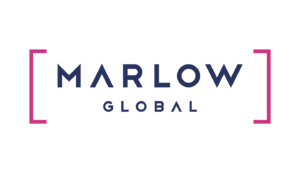Russian lawyer Sergei Magnitsky, whose death in 2009 spurred the 2012 ‘Sergei Magnitsky Rule of Law Accountability Act’ in the United States.
The International Bar Association’s Human Rights Institute last week released a report on the use of targeted sanctions to protect journalists. Whilst the use of sanctions is by no means a new method to target human rights abusers – the UN, for instance, has established 30 sanctions regimes since 1966 – states have increasingly been acting unilaterally or as part of coalitions of like-minded governments. With gridlock often inevitable in the UN Security Council, and with the effectiveness of targeting individuals and entities, as opposed to whole countries, confirmed, states have begun enacting ‘Magnitsky’ legislation to impose targeted sanctions.
There are so far three countries with national legislative frameworks enabling targeted sanctions – the USA, the UK and Canada.
USA
-
The US was the first to enact such legislation in 2012 with the Sergei Magnitsky Rule of Law Accountability Act, named after Sergei Magnitsky, a lawyer who was arrested and died in custody after exposing corruption in Russia.
-
The 2016 Global Magnitsky Human Rights Accountability Act built upon this earlier legislation. The Act authorises two main types of sanctions:
i) Denying individuals a visa to enter the US or revoking their existing permits;
ii) Blocking a sanctioned person’s property in the US or within the possession or control of a US person, and generally prohibiting US persons from transacting with the sanctioned person.
-
The Economist has reported that the Trump administration “has been more enthusiastic than any other in history about using financial sanctions”, adding over 3,000 people and entities to the US Treasury’s sanctions list. Those targeted have included:
-
The Venezuelan Foreign Minister, Jorge Alberto Arreaza Montserrat;
-
Bashar Al-Assad and other senior Syrian officials;
-
Turkish government officials and ministries after Turkey’s incursion into Syria in October 2019;
-
Chinese security official Gao Yan, allegedly linked to the death in custody of human rights activist Cao Shunli;
-
Officials and financiers involved in extrajudicial killings, attacks against civilian populations or corruption in Ukraine, Myanmar, South Sudan and Cambodia.
Canada
-
Shortly before the US’ Magnitsky Act came into force, Canada enacted the Justice for Victims of Corrupt Foreign Officials Act 2017.
-
The key difference with UK and US Magnitsky Laws is that the Canadian legislation only authorises sanctions against individuals who are ‘foreign nationals’, as opposed to legal ‘persons’ of any nationality, which includes companies as well as individuals.
UK
-
The Sanctions and Anti-Money Laundering Act, the UK’s ‘Magnitsky Act’, was passed in 2018. However, the decision was taken not to impose sanctions unilaterally until after leaving the EU. It is expected that secondary legislation will be passed to operationalise this framework in the spring of 2020.
Other sanctions regimes include that of the European Union, the African Union and the Economic Community of West African States. The Arab League has previously imposed countrywide sanctions against Syria and an economic and diplomatic embargo against Qatar.
Australia is considering whether to upgrade its Autonomous Sanctions Act of 2011 to create a sanctions regime similar to that of the US’ Magnitsky Act.
Lithuania, Latvia and Estonia adopted measures to sanction individuals following the death of Sergei Magnitsky. This has not, however, led to a broader practice of imposing targeted sanctions.
Criticisms and misuse of Magnitsky Laws
Although mechanisms do exist under the US Magnitsky Act to challenge the application of sanctions, in practice, geopolitics and personal or political relationships are likely to play a role in the probability of sanctions being lifted.
One example of a targeted individual challenging his placement on a sanctions list is Russian businessman Oleg Deripaska. In March 2019, he announced that he is suing the US Treasury Department, stating that, “the presumption of innocence is a basic principle of the American legal system, and one that has manifestly been ignored in applying sanctions to me.”
Sanctions have occasionally led to counter-sanctions. In 2012, following the murder of Sergei Magnitsky and resulting sanctions against Russian officials, Russia issued counter-sanctions, including a ban on Americans adopting Russian orphans. Saudi Arabia launched economic reprisals against Canada in 2018 after the Canadian government sanctioned Saudi officials as a response to the killing of the Washington Post columnist Jamal Khashoggi. In December 2019, President Duterte threatened to impose visa requirements on US citizens travelling to the Philippines if the US sanctioned Philippine officials after the arbitrary detention of an opposition politician.
In March 2019, the US government announced that it had imposed visa bans against the Prosecutor of the International Criminal Court after the Court did not heed its warnings about pursuing investigations against US military personnel. If Western governments such as that of the US do not openly condemn and investigate accusations of human rights abuse carried out by its own military forces, government or allies, one can easily see why accusations of double standards would follow when sanctions are applied following abuse by foreign governments and officials.
Whilst the US advocates for a free press around the world, journalists in the United States have come under unprecedented attack since Donald Trump came into office. It is no secret that Mr Trump has characterised large segments of the media as “fake news” and “enemies of the people”. Furthermore, some would point to the case of WikiLeaks founder Julian Assange as an example of American selective justice. It remains to be seen whether a US court of law would convict Mr Assange with the charges levied against him. However, the potential for political pressure to affect a judicial decision in his case brings into question the blurry line between protecting national interest, and protecting a free press’ ability to expose human rights abuses.
The ‘Report on the Use of Targeted Sanctions to Protect Journalists’ is available for download here.


